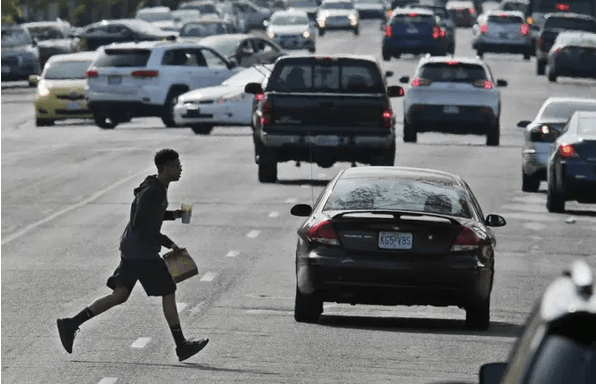TechCrunch is hosting a mobility-focused, virtual conference on June 9. The event will feature everything from micrombility and smart cities to autonomous vehicles and electric aircrafts. Join 2K+ mobility industry leaders, startups, and investors and save an extra 10 percent on tickets with promo code “streets.” Book tickets now: https://tcrn.ch/2QnyCjv
A massive coalition of global health authorities, government leaders and advocates are calling on communities around the world to inoculate themselves against the other pandemic that’s killing their residents during COVID-19: speeding drivers.
And one foundation among them is even launching a €15-million ($18 million) fund to help communities implement effective policy and road design changes that they say are tantamount to “a speed vaccine.”
In a press conference held on Monday to kick of the United Nations Global Road Safety Week, leaders from the World Health Organization, the Child Health Initiative, and more announced the launch of an advocacy campaign and a new grant program to get policymakers to adopt 20 mile-per-hour speed limits anywhere that people might mix with car traffic in their communities. Pedestrians survive crashes with drivers traveling 20 miles per hour or less 93 percent of the time, but those odds get substantially worse the faster drivers go; a walker is about 70 percent more likely to be killed if she's struck by an automobile traveling at 30 versus just 25.
The effort builds on the famous Stockholm Declaration of February 2020, when 140 United Nations member states pledged to halve worldwide roadway deaths by 2030 — though notably, the Trump administration declined to sign on, insinuating that the target was unrealistic in a country where states are legally allowed to set safety “goals” that would actually increase traffic fatalities and still collect federal transportation funding.
But mere weeks after the U.S. declined to even try to save the lives of the roughly 38,000 road users who die on American streets ever year, the COVID-19 pandemic upended public life around the globe — and public perceptions about how attainable the Stockholm goal might be.
“As the traffic dropped [in the wake of the March lockdowns,] we have seen a different reality where road traffic injuries have been briefly lowered, where our air was made cleaner, and our communities, in some ways, became more livable,” said Zoleka Mandela, Global Ambassador for the Child Health Initiative and the mother of 13-year-old Zenani Mandela, who was killed by a driver in 2010. “[We need to] take those temporary benefits and make them more permanent.”
Of course, those temporary benefits quickly eroded as drivers returned to the roads. U.S. road deaths spiked 8.4 percent between 2019 and 2020, not despite, but because national vehicle miles travelled dove 13 percent, cutting congestion that otherwise would have slowed drivers down. Many street safety advocates say that cities and states did far too little to implement other measures to curb speeding rates, like quick-build road diets and car-free open streets programs.
The coalition is hoping that the pandemic has finally helped leaders understand the urgent importance of robust preventative measures in all realms of public health — including the road design features that slow down drivers. The 15 million euro pot, furnished by the FIA foundation, will go directly to advocates building campaigns to implement lasting legislative and regulatory change to save lives.
For advocates like Mandela, who is the granddaughter of activists Nelson Mandela and Winnie Madikizela-Mandela, getting the speed vaccine into communities around the world isn’t just a matter of health — it’s also a matter of justice.
“My grandparents knew quite a bit about fairness and human rights,” said Mandela. “The poor and vulnerable are forced to breathe toxic air, and to have their children face speeding traffic every single day. Basic life-saving measures need to be put in place. Is it really too much to ask?”






